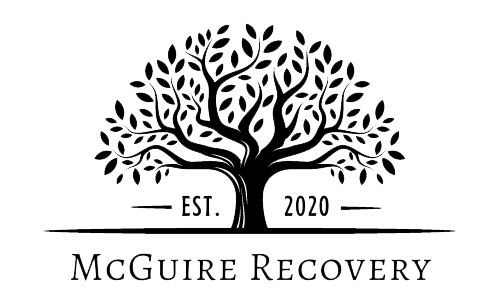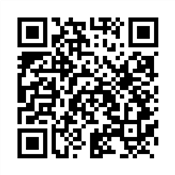-
How do I know if McGuire Recovery is clinically appropriate for my child?
Everything starts with a phone call. We can make an assessment based on family reports to start the process, so call today and see if we are a fit!
-
Why would my child need this program if they have already completed residential treatment?
Residential treatment is a great kickoff to a life of recovery, but the real-world challenges presented when they return home are where you will need the most support. We often recommend residential drug rehab based on acuity, to begin with. In fact, we have a whole network of vetted programs where we have contacts so that we can serve as liaisons and external case managers throughout the process. Bottom line is that we are a great fit either way and we can function as primary or aftercare.
-
Where did I go wrong as a parent? How did this happen?
We get it. You did the best you could as a parent even if you weren’t perfect. And at this time of your life, it may seem like a personal failure. However, you didn’t cause this, you can’t control it, and you are not the cure. Say that to yourself when you feel overwhelmed by these feelings because it’s the truth. Everybody makes choices and our society is littered with “landmines” like drug and alcohol use. The good news? Most people in recovery are truly blessed to have access to the wisdom and knowledge held by the therapists and the literature surrounding these difficulties. Besides, making it through adversity will strengthen your child and your family if you let it. Let’s get stronger together – give us a call and let’s talk through this!
-
Won't it make things worse to have my teen in a group of other messed up kids?
Most of the time this thought originates from a place of parental denial that their kid is as bad as the others. It’s a hard place to be but at least from our side we can assure you that our groups are small and are supervised by 2-3 licensed therapists. Additionally, all of the research shows that group therapy is the best way to make therapeutic progress for substance users.
-
What if my child is reluctant to accept help?
This is not new to us. In fact, it is one of our biggest FAQs! We encounter resistance and denial on a regular basis, that’s why you hire us to get involved. Denial is a powerful force that prevents people from making lasting connections between the problems they are having and the behaviors that create them. Intervention is a process, not an event, and it requires that everyone including the identified patient and family come out of denial so that decisions can be made. At the end of the day, you are the parent and will have to establish boundaries and consequences around your child’s decision to participate in recovery or not. So let’s rip the band-aid off, and we can get your teen on the path to a brighter future! We’re only a call away.
-
How will this help my child?
No program is a silver bullet, if any program claims that they are the cure for addiction you should run. What we will do is equip them with everything they need to live a life of sobriety and support the family every step of the way. Even long after our clients complete the program they return to sit in on groups or do individual sessions to stay tuned up.
-
How can I keep my teen from accessing drugs?
Prevention can be really helpful and we do encourage families to take precautions such as locking up narcotic medicine or disposing of it when it is no longer needed. Not keeping alcohol in the house when you know that it’s a hazard for them is another good idea. Limiting access to funds when you know in your heart that it is enabling them to purchase drugs or alcohol. However, we know that forced abstinence alone is not enough to stop most people from seeking them out if they are living with untreated addiction. Call now for a free consultation! 904-575-7209
-
What kind of behavioral changes are associated with drug use?
Loss of interest in healthy activities, heavy mood swings, changes in coordination, appearing sleepy, nausea, eyes red/squinty/or glassy, swings in appetite, changes in sleep/wake cycle, sneaky behaviors, telling lies, oversleeping for school or work, sniffing a lot, irritability, erratic aggression/hostility, sudden weight changes and more. If you suspect your teenager is using drugs or alcohol they probably are, so call now and we can work through the issues.
-
How do I know if my teen is using drugs?
While the only sure way is to catch them in the act or on a drug test, sometimes intuition is your best friend. If you see major changes in behavior for the worse, we have to help them be honest about that and make the adjustments, no matter what. What may start with a family intervention therapy session may end with a drug test to confirm or deny these concerns. So, call now and get started – the earlier you call, the faster we can work through issues and get your family out of this vicious cycle.
-
How can I support my teen at home?
Know your own boundaries and hold them firmly in place. Do not condone or facilitate the use of substances or the companionship of those who do. Limit access whenever possible to substances and friends who have them. Speak to them firmly but in love and enforce every consequence you threaten while setting boundaries. Last but not least get professional help onboard so you don’t have to fight this alone. Call now 904-575-7209
-
How often do you drug test?
We generally drug test weekly and also upon suspicion of use. Drug testing is a way to keep them accountable and honest throughout the course of the program and serves as a means to earn back the trust of their family.
-
Is McGuire Counseling a safe space for LGBTQ+ clients?
Yes! Our experience has been that clients in this age group have been quite comfortable honoring the use of preferred pronouns and have treated all people with respect. Abuse and harassment of any kind would never be tolerated in our office. In fact, Annie McGuire specializes in working with the LGBTQ community – take a look at her LinkedIn profile here.
Have another question? Message us Here

"Today, my Family is healthy and strong. We are now equipped to meet life’s challenges with grace, determination, and respect for each other. The journey we started with the McGuire Counseling and Psychotherapy team is one both me and my son, as individuals, have said we would never change. We have been given the gift of healing
Angie R – Mother
"I came to this place struggling with mental health and drug use. My mom didn’t know how to help me, I didn’t know how to help myself. These people talked to me like a human being and looked at me eye to eye. They helped me with a lot from being responsible around the house to changing my life around."
Jake – Patient
"He will walk through the storm with you and connect you and your child to any and every resource you need. He is an outstanding counselor because he’s been through it himself. You don’t need to look any further if your young person is struggling. He is the BEST."
Jane D – Mother

